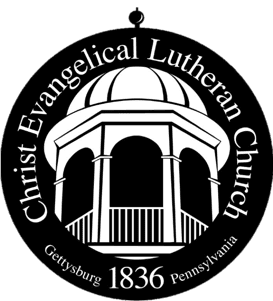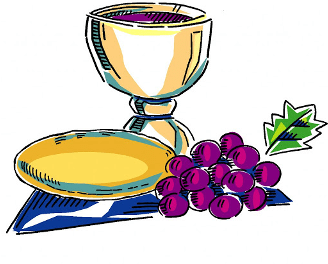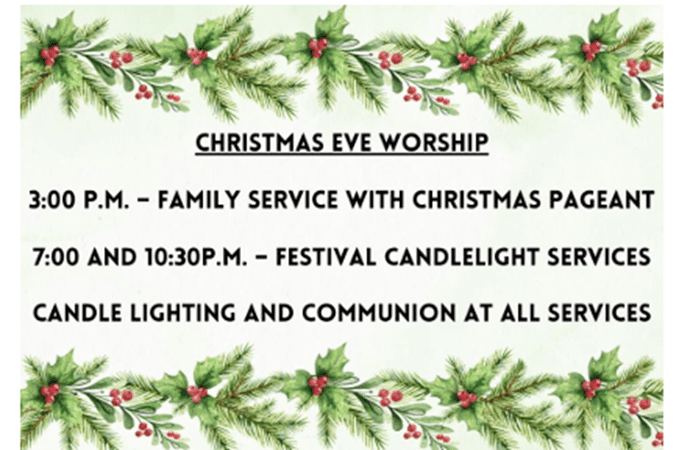We are all missing many things during this COVID – 19 pandemic and the sacrament of holy communion is among them. Many Lutheran Christians lament its absence, including your pastors. Holy Communion is a meaningful and important part of our faith life and spirituality. For Lutherans it is one of God’s means of grace. God promises to be present in the meal and through that presence we experience God’s refreshing and renewing love, forgiveness, life, and grace.
Pastor Eckman and I have given intentional thought to this significant component of our life together. We recognize that receiving the sacrament in these pandemic days, filled with uncertainty, fear, sickness, death, and grief, would be meaningful and faith-enriching. Out of love for our neighbors and concern for the common good, our congregation’s in-person worship services are currently suspended, including the celebration of the sacrament of the altar. ELCA Presiding Bishop Eaton and Lower Susquehanna Synod Bishop Dunlop have affirmed this approach.
Several members have inquired about ways we might be able to share holy communion during this time. While we appreciate people’s desire for the sacrament and realize members are missing it, there is not a way to safely administer the sacrament at this time. Some of asked if communion can be held virtually with worshippers providing their own bread and wine and the pastors consecrating it from afar. Such an approach would deviate from Lutheran theological understanding and liturgical practice concerning the sacrament.
Based on Holy Scripture Lutherans confess that Jesus Christ instituted holy communion on the night of his betrayal and promised to be truly present through the bread and wine. Philip Melanchthon in his Apology of the Augsburg Confession stated, “We are talking about the presence of the living Christ, knowing that ‘death no longer has dominion over him.’” Martin Luther in his Small Catechism shared that through the body and blood of Christ we receive the gifts of forgiveness, life and salvation. Melanchthon highlighted in The Augsburg Confession that we receive this gift through faith that it may strengthen and awaken faith. Lutherans have always understood this sacrament takes place within the corporate gathering for worship where the Word of God is read and proclaimed, the sacrament of baptism is offered, and communion is celebrated.
To ensure the Word of God is proclaimed and taught and the sacraments are administered properly, the church instituted the office of ministry. This office does not make the sacraments what they are. For the sake of good order, the office of ministry administers these gifts of God’s grace. As called and ordained ministers we take seriously this responsibility to properly administer baptism, absolution, and communion. Communion should not and need not be administered virtually for it diverges from a Lutheran understanding of gathering together in assembly around the bread and wine to receive it as a corporate body, not as isolated individuals. This communal nature of this meal places the significance and importance of the sacrament on the promises of God’s grace for the community of faith and not on the power and actions of the minister or even in the elements themselves. It is why we call the pastor who officiates at a holy communion liturgy the Presiding Minister (presiding over the gathered community that has come together to hear the Word and receive the sacraments) and not the “Celebrant” or “Consecrator”, (which focuses on the minister’s power to consecrate and on the elements to be consecrated). God chooses to be present in the meal because God has promised to do so. Yes, communion is deeply personal for each of us and at the same time it is received in a communal gathering, a koinonia, with other Christians. Partaking of holy communion is something we do together as the people of God. Our current reality remains a temporary one. Society is not yet reordering itself permanently into a virtual mode of relationship. When the pandemic concludes we will certainly rejoice in returning to the eucharistic table together in-person. Plans are underway to make this return both celebratory and safe.

While the sacrament of the altar’s benefits are significant (e.g. the forgiveness of sins, the gift of God’s grace, the promise of new life, the real presence of Jesus Christ), it would not be in good order to introduce inappropriate practices such as virtual communion at this time. The same benefits we receive at holy communion are available through the proclamation of the Word of God. With that said, I fully appreciate that holy communion does provide an incarnational, tactile way of experiencing God’s grace that the Word does not. Throughout Lutheran history there is precedent for the use of the holy sacrament at times of pastoral emergency, especially of viaticum (communing a person near or in danger of death). Pastor Eckman and I will continue to monitor these situations and offer the sacrament should it be desired and can be administered rightly and safely.
I appreciate and value the hunger for the sacrament shared by many congregational members. Some have referred to this as a time of fasting, which is normally done as a conscious, voluntary decision for a spiritual purpose. Regardless of whether you see this as a time of fasting or as a temporary suspension, it offers an opportunity to cast new light on the benefits of holy communion. In addition, it affords time to reflect more deeply on the meaning, power, and communication of the Word of God. During this time we can reflect anew on the refreshing benefits, meaning, purpose, impact, and gift of the sacrament of holy communion.
Pastor Eckman and I continue to be in conversation with each other, our Lutheran and ecumenical leaders, pastoral colleagues, and theologians regarding this important element of our life together. If you would like to discuss this further, we are available to do so. We look forward to the day when in-person worship reconvenes and holy communion can once again be a part of our regular worship of God.
Your servant in Christ,
Pastor Stephen Herr



Pastor Jay’s sermon – “What Will the Future Hold?” was so pertinent. I appreciated his comments applicable to my daily life. We’re never alone. Thanks to Pastor Steve for refreshing my mind about Holy Communion, and has been a question during this time of different kinds of worship. Good to see Elizabeth’s presence for the opening. Maybe she could do the readings sometime. The new Website looks good. Thanks for continuing to grow in this new medium – “What Will the Future Hold”?